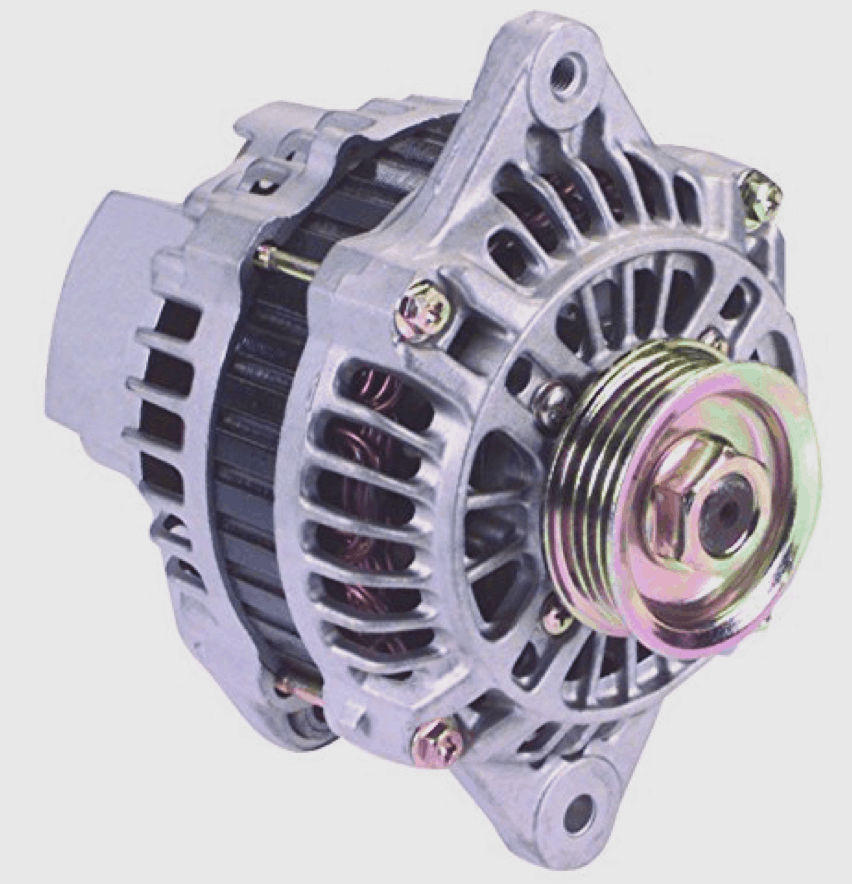One of the most critical engine components in your Toyota Avensis is the alternator. If you suspect that you have alternator problems, it’s something that should be dealt with before you end up stranded somewhere. Your Avensis’s battery will not be able to keep the accessories and engine systems running for long without a properly functioning alternator.
Toyota Avensis: Bad Alternator Symptoms
Before diving in and reading this section on Avensis bad alternator symptoms, take a look at your battery posts. Are they clean and free of corrosion? If they are covered in whitish crust, a good cleaning may be all that you need to do.
We always recommend this step since it’s free to do, and often solves the problem. All that you need is a good terminal brush. Here’s a good YouTube video on how to accomplish just that.
Battery Light
If your alternator is no longer capable of charging the battery, the battery light will come on. It’s a warning light that indicates that the voltage in the battery is not sufficient. The alternator may be charging still, but just not enough to cover the electrical needs of your Avensis.
Dead Battery
A dead battery is the end result of an alternator not charging enough. Usually the battery light will have been on for a bit, the vehicle runs fine, and when you go to start it back up it won’t crank.
At this point, you’d want to have the battery tested. Most parts stores (or even Wal-Mart) will do this for you free of charge. If the battery tests fine, it’s pretty safe to say that it is time to take the alternator in for testing.
Fading Lights
When your alternator is going bad, one of the first things that you may notice is that the headlights and dashboard lights begin to fade. Eventually the warning light will go on letting you know that the battery is not charging.
Listen to Your Senses
Being aware of the smells and sounds that your Avensis makes is a great way to notice when something has gone wrong, and help you identify any potential alternator problems.
- Rubber Smell– If the serpentine belt that turns the alternator has gone bad, is out of adjustment, or has gone bad, it may not be able to turn freely anymore. When it can’t turn freely it may produce a noticeable rubber smell.
- Sounds– You may hear the serpentine belt squeal when you start the engine. The alternator may have worn out bearings, which lead to grinding or a hum that almost sounds like nails on a chalkboard spinning. Also the alternator bushings can go bad, which can mess with it’s geometry causing odd noises.
- Visual Inspection– With the engine off, take a look at the belt that turns the alternator. Does it appear to be shiny or glazed? Is it too tight or too loose? If the alternator can’t turn properly, it certainly can’t charge your Avensis properly.
Conclusion: Toyota Avensis Alternator Problems
If you have reason to believe that your alternator is not charging the battery all the way, and you are out and about, see if turning off all of the accessories (including climate control) and lights that you safely can gets the warning light to turn off. If it does go off, at least you know you can safely drive it somewhere with enough power going to the engine. Good luck diagnosing your Toyota Avensis’s alternator problems.


